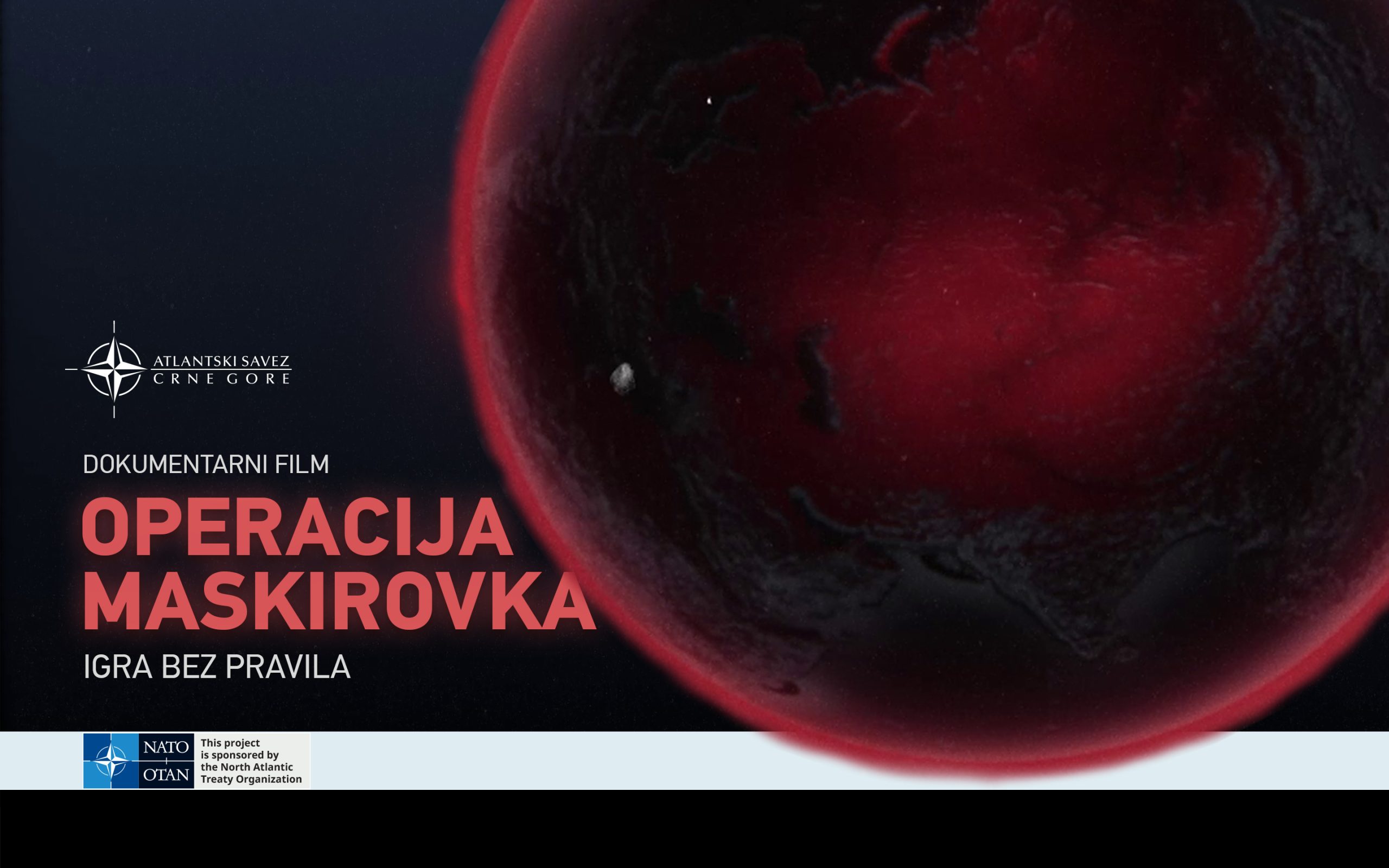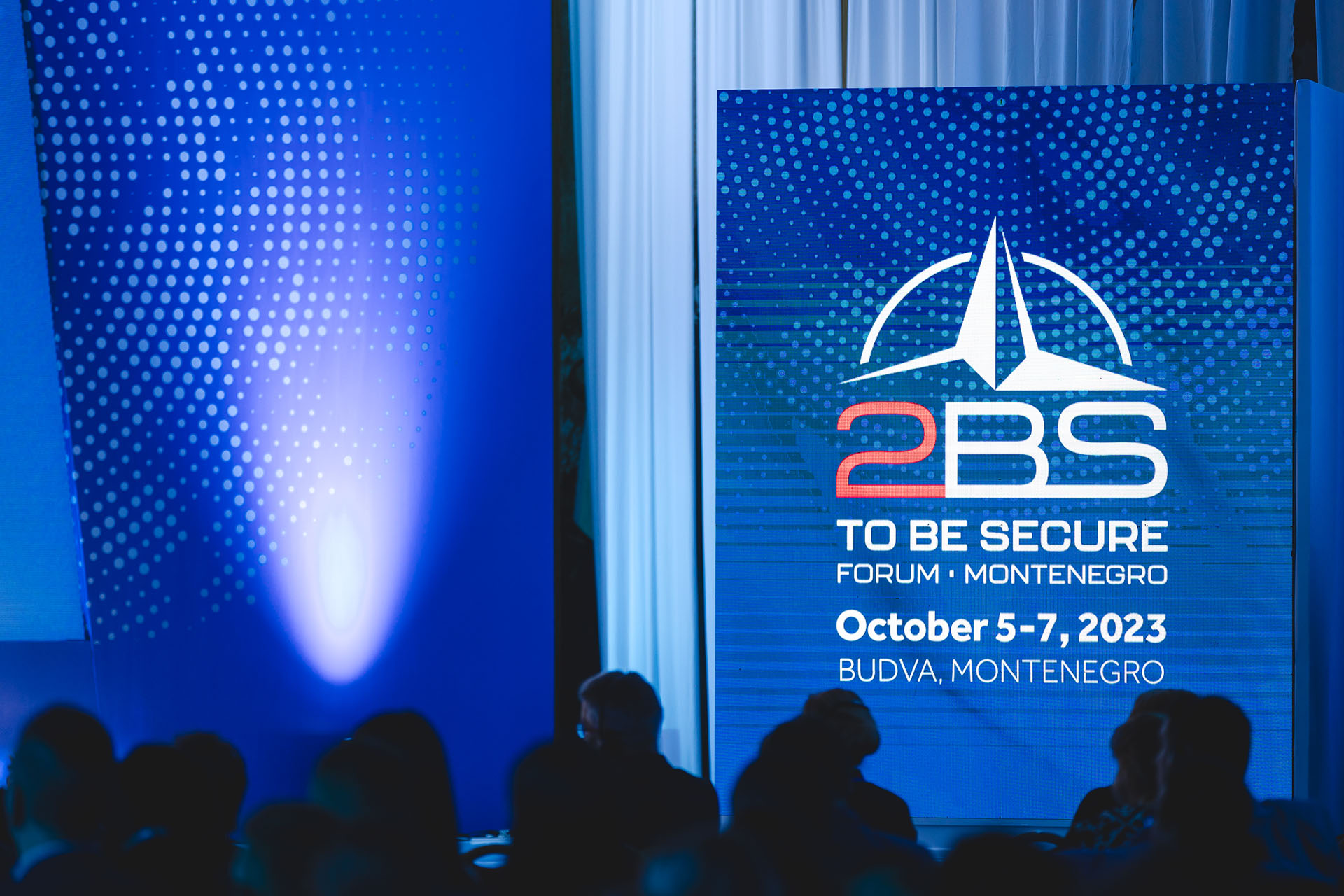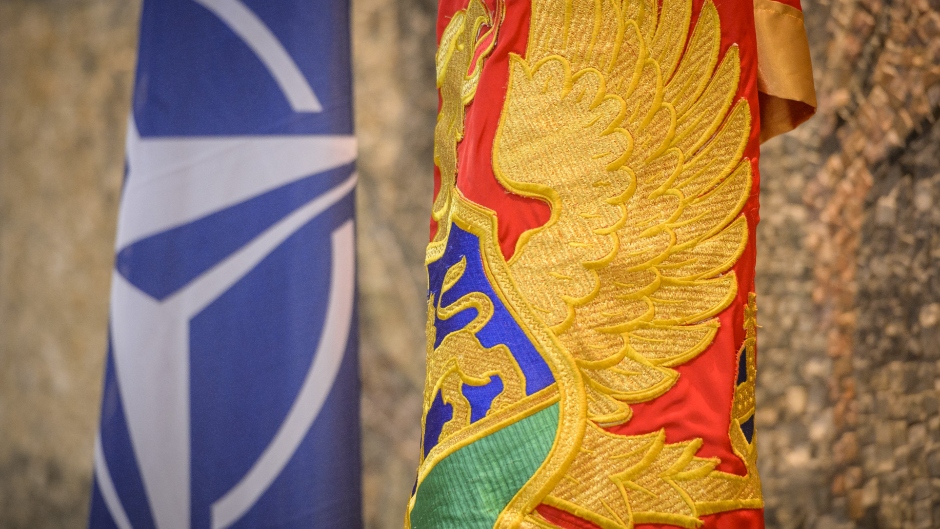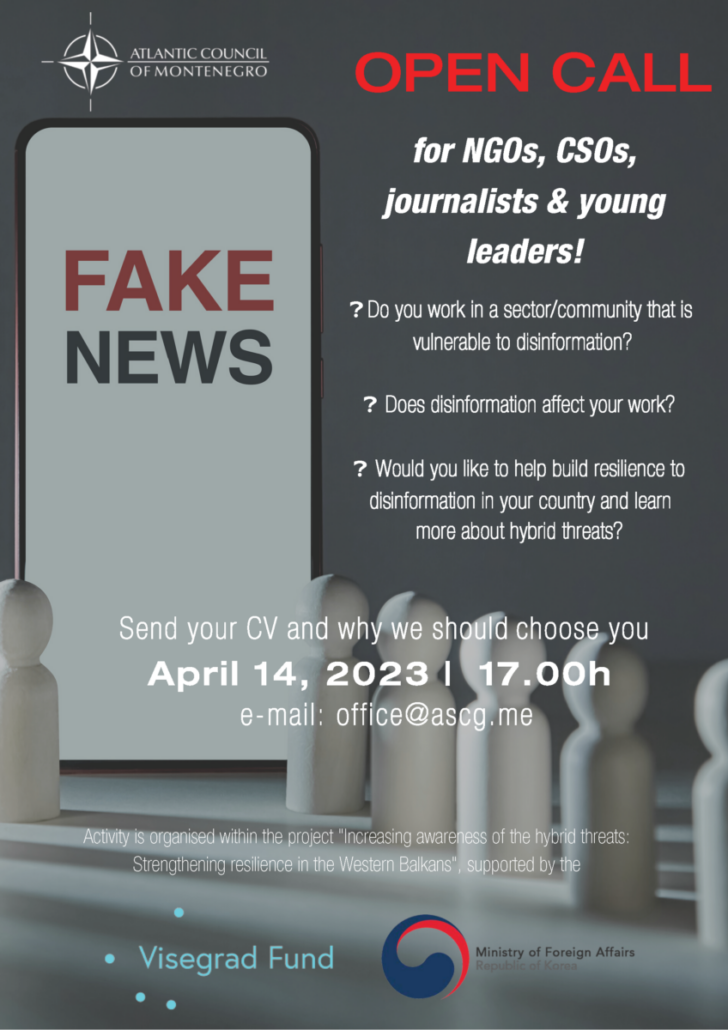Despite all the uncertainties, the retrograde trends, and the slowdown in progress, the Western Balkan countries, the EU, the US, and NATO stand a real chance of developing a clear and shared vision for the region based on supporting the necessary reforms, Milica Pejanovic Djurisic says in her presentation of the Western Balkans Security Report at the round table.
The participants of the round table discussion on the global events affecting the Western Balkans were the representatives of the diplomatic corps.
Recalling a series of crises that face the world and its consequences for the Western Balkan countries, Pejanovic Djurisic highlights that the Western Balkans are, once again, at a crossroads of different geopolitical aspirations.
The liberal democracy is in crisis, while the Western values are being brought into question, the region is vulnerable, and security has not been ensured, she stresses. The Report, therefore, particularly highlights the necessity for NATO to create a new vision, and for the EU, which, so far, has showed not enough firm intentions to be actively involved in resolving the issues, to adapt its approach.
According to her, it is of key importance to establish an effective dialogue between the US and the EU which would result in an agreement on their shared strategy for the Western Balkans.
Recalling that the Western Balkan region was once considered a successful example of US foreign policy, she highlights that the new administration in Washington has demonstrated its renewed interest in the region, and, especially, that it would engage in its unresolved issues.
Russia used all vulnerabilities in the West, and, as the permanent member of the Security Council, can block all the processes in the region, Pejanovic Djurisic says. Considering its strong political and historical ties established with the region in the past, Russia has been perceived as an important partner, and now it is asserting itself as an energy and trade partner, as well as an investor. The Report particularly stresses that Russia’s soft power has gained in intensity.
According to Pejanovic Djurisic, this has been particularly relevant in the case of Montenegro, during the years both preceding and following the preparation phase for the full NATO membership, with Russia exerting its influence through the Serbian Orthodox Church, insisting on the Pan-Slavic identity, and expanding the network of the interconnected and biased media, and disinformation campaigns. The region is susceptible to Russia’s soft power, which has become dominant, because of its weak institutions, lack of information, and low level of media and functional literacy, she says.
The Report indicates that China’s approach, unlike Russia’s, is based on the economy and its position as an important infrastructure partner. The countries are courted with attractive arrangments which eventually lead to substantial debts. However, it is encouraging that this influence tactic has been revealed, Pejanovic Djurisic highlights.
Regarding the influence of Turkey, which is perceived by the countries in the region as an ally, and their successful economic cooperation, but, in her opinion, the fact that it has been reshaping its foreign policy in recent years, should be considered with close attention.
The European Union, as the most important partner of the region considering its European perspective, must show no hesitancy and not slow down the integration process, which could, as Pejanovic Djurisic warns, negatively affect the fulfillment of strategic orientation in their foreign and security policy, and their geopolitical goals.
While portraying the situation in the Western Balkans, she says that their respective civil societies are still not sufficiently developed nor structured and are susceptible to political influence, while several countries’ media are under the strong influence of certain economic and political groups.
Manipulating fears of different ethnic groups and their mutual differences presents an instrument of the political organization, while religion is the most important criterion for defining national identity. In addition, none of these countries possess the sufficiently developed capacities to respond to emergency situations.
Another major weakness of the region is its high susceptibility to disinformation and fake news which have gained in intensity, she highlights. The Report indicates that Serbia is the main proving ground for Russia in accomplishing its interests through media, officials, and activists, Pejanovic Djurisic says.
In this context, she gives a particularly example-a direct meddling into Montenegro’s internal relations by Serbia, which, following Russia’s soft power model, uses propaganda, spreading of disinformation, and fake news aimed at providing support to their preferable actors on the political and the NGO scene in Montenegro.
Recalling the key regional problems, that have security implications, Pejanovic Djurisic indicates the unresolved Serbia-Albania relations concerning the status of Kosovo, and the dysfunctionality of the Dayton constitution of Bosnia and Herzegovina, whose existence is increasingly brought into question. Security challenges, such as organized crime, terrorism, and violent extremism has emerged as the consequences of the overall processes in the region.
The only way to respond to these challenges is by improving the overall efficacy of the security activities combined with a clear political will, she concludes.
The Report of the Atlantic Council of Montenegro analyzes the situation in the Western Balkan countries respectively, as well as their susceptibility to different influences.
Concerning the situation in Montenegro, the Reports argues that it was to be expected that the end of the long, one-party rule would bring numerous problems and challenges in a political, economic, and social context.
However, the circumstances and the platform for the change transformed Montenegro from the stability anchor, the leader in EU integration process, and the NATO member to the example of the most successful thrust of the Russian-Serbian policy into the Western Balkans, the Report states.
It turns out that the fight against President of Montenegro Milo Djukanovic was motivated by his betrayal of Greater Serbia, rather than by his autocratic rule, while the alleged fight against crime, that transformed into revanchism within the state administration, has revealed the intention to delegitimize Montenegro’s independence and Euro-Atlantic path portraying this country as a criminal formation under the veil of the fight against crime.
The Report states that both independent and impartial journalism and NGOs are facing a major crisis. The critics of the former government have become parties’ mouthpieces, while some have even become the key shareholders in the current ruling green party URA.
The employment based on the affiliation to one political party has been replaced by the affiliation to another party, followed by the persecution of the political opponents, while the state has been borrowing at the highest interest rates. China’s loan for the instruction of the highway section drastically increased the public debt, posing a major challenge for public finances.
The Report stresses that the former government attempted to resolve the issues concerning the Serbian Orthodox Church (SPC) in Montenegro too late and that this opened up the door for Serbia and the Serbian Orthodox Church to meet their political interests via the platform for resolving the issue of social injustice due to systemic corruption. For the first time since the introduction of the multi-party system, a new government was elected, in whose meeting with the Serbian Orthodox Church in the Ostrog Monastery the DPS was left out.
The formation of the Government in Podgorica has recently served as proof to the war participants and advocators that, by directly interfering in the political and electoral life at the financial, media, intelligence, and logistic level, the Serbian world can be possible even in peacetime, the report states.
After the end of the representation of the Report, the representatives of the diplomatic corps joined the discussion. The contribution of the Atlantic Council of Montenegro to the development of security and democracy in not only Montenegro but in the region as well has been particularly stressed.
The U.S. Ambassador to Montenegro Judy Rising Reinke praises the initiative of the Atlantic Council of Montenegro to produce the Western Balkans Security Report, adding that the Report addresses the key issues, as well as the security challenges and situation in the Western Balkans. She highlights that the Western Balkan region is very important to the United States which will continue its cooperation with the EU toward the path of the full integration of the Western Balkan countries into the Euro-Atlantic community. Concerning Montenegro and its challenges, the U.S. Ambassador believes that the reemergence of the ethnically charged nationalistic divisions should be collectively addressed.
Ambassador of Kosovo Yiber Hyisa stresses the importance of the Report especially considering the current situation in the Western Balkans. The redrawing of the borders, envisioned by the Serbian world project, could have negative implications for the region, he states.
Ambassador of the Republic of Slovakia Boris Gandel that nationalism poses a great threat, recalling the events from the past. The history is repeating itself, and we are witnessing, once again, the rising nationalism in the region, he added.
In response to the question of the Ambassador of Bosnia and Herzegovina how powerful is the foreign influence and whether it will intensify or not in the future, Milica Pejanovic Djurisic says that a significant number of people believed that once Montenegro joins NATO, other countries’ influences in Montenegro will be limited. As already stressed in Report, she repeats that the foreign influence in the Western Balkan countries is directed against Brussel and the transatlantic community.
























